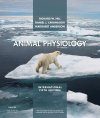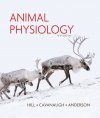About this book
Comprehensive, contemporary, and engaging, Animal Physiology provides evolutionary and ecological context to help students make connections across all levels of physiological scale. One of the major challenges instructors and students face in Animal Physiology is making connections across levels of biological scale. Animal Physiology addresses this challenge by providing ecological and evolutionary context to the study of physiology at all levels of organization: genome, molecular biology, biochemistry, cells, tissues, organs, and organ systems. Hill's inclusion of ecology and evolution helps readers gain a holistic perspective on animal function and sets Animal Physiology apart from texts that focus more narrowly on physiology. Hill's Animal Physiology is trusted by instructors and students because of its authoritative, current, engaging, and lavishly illustrated presentation.
Contents
Preface
Part I Fundamentals of Physiology
Chapter 1. Animals and Environments: Function on the Ecological Stage
Chapter 2. Molecules and Cells in Animal Physiology
Chapter 3. Genomics, Proteomics, and Related Approaches to Physiology
Chapter 4. Physiological Development and Epigenetics
Chapter 5. Transport of Solutes and Water
Part II Food, Energy, and Temperature
Chapter 6. Nutrition, Feeding, and Digestion
Chapter 7. Energy Metabolism
Chapter 8. Aerobic and Anaerobic Forms of Metabolism
Chapter 9. The Energetics of Aerobic Activity
Chapter 10. Thermal Relations
Chapter 11. Food, Energy, and Temperature
AT WORK: The Lives of Mammals in Frigid Places
Part III Integrating Systems
Chapter 12. Neurons
Chapter 13. Synapses
Chapter 14. Sensory Processes
Chapter 15. Nervous System Organization and Biological Clocks
Chapter 16. Endocrine and Neuroendocrine Physiology
Chapter 17. Reproduction
Chapter 18. Integrating Systems
AT WORK: Animal Navigation
Part IV Movement and Muscle
Chapter 19. Control of Movement
Chapter 20. Muscle
Chapter 21. Movement and Muscle
AT WORK: Plasticity in Response to Use and Disuse
Part V Oxygen, Carbon Dioxide, and Internal Transport
Chapter 22. Introduction to Oxygen and Carbon Dioxide in Physiology
Chapter 23. External Respiration: The Physiology of Breathing
Chapter 24. Transport of Oxygen and Carbon Dioxide in Body Fluids (with an Introduction to Acid-Base Physiology)
Chapter 25. Circulation
Chapter 26. Oxygen, Carbon Dioxide, and Internal Transport
AT WORK: Diving by Marine Mammals
Part VI Water, Salts, and Excretion
Chapter 27. Water and Salt Physiology: Introduction and Mechanisms
Chapter 28. Water and Salt Physiology of Animals in Their Environments
Chapter 29. Kidneys and Excretion (with Notes on Nitrogen Excretion)
Chapter 30. Water, Salts, and Excretion
AT WORK: Mammals of Deserts and Dry Savannas
Appendix A The Système International and Other Units of Measure
Appendix B Prefixes Indicating Orders of Magnitude
Appendix C Gases at Standard Temperature and Pressure
Appendix D Logarithms
Appendix E Exponential and Allometric Equations
Appendix F Phylogenetically Independent Contrasts
Appendix G The Standard Amino Acids
Appendix H Basic Physics Terms
Appendix I Summary of Major Bloodborne Hormones in Mammals
Glossary
Index
Customer Reviews
Biography
Richard W. Hill is a Professor in the Department of Integrative Biology at Michigan State University and a frequent Guest Investigator at Woods Hole Oceanographic Institution. He received his PhD in Zoology from the University of Michigan. Apart from the multiple editions of Animal Physiology, Dr Hill is a coauthor of Principles of Life, Second Edition, and has authored two other books on animal physiology, as well as numerous articles for scientific journals, encyclopedias, and edited volumes. Among the awards he has received are the Outstanding Faculty Award (Michigan State University Senior Class Council) and election as Fellow of the American Association for the Advancement of Science. He was a U.S. Senior Fulbright Scholar from 2000-2001. His research interests include: temperature regulation and energetics in birds and mammals, especially neonates; and environmental physiology of marine tertiary sulfonium and quaternary ammonium compounds.
Margaret Anderson is Professor Emerita of Biological Sciences at Smith College. After completing her PhD at Stanford University, she undertook postdoctoral studies at the Universidad Catolica de Chile, Harvard University, and the University of Puerto Rico. At Smith, Dr Anderson served as an Academic Dean, Director of the Program in Neuroscience, and premedical advisor. She is one of six founding members of the Consortium of Medical Schools and Women's Colleges, and she contributes to several efforts that encourage women and minorities in the sciences. Her research interests include the functional properties of excitable cells.





















![Kame no Kōra wa Abarabone: Jintai de Arawasu Ugokumonozukan [Turtle Shells Have Ribs: A Picture Book of Animal Anatomy Represented by the Human Body]](http://mediacdn.nhbs.com/jackets/jackets_resizer_medium/24/249897.jpg?height=150&width=99)













